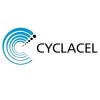
Aerobic Versus Resistive Training on Functional Capacity in Acute Myeloid Leukemia
Acute Myeloid Leukemia in RemissionSixty patients with AML from both sexes aged from 35-45 years were selected from hematology department in Nasser Institute Hospital where the study was conducted. Patients were randomly assigned into two groups equal in number. Group (A) underwent aerobic exercises in the form of cycling with 50-60% of maximum heart rate. Group (B) underwent resistive training conducted in the form of a series of exercises using free weights, and dumbles. Sessions were conducted three times /week for eight weeks. Six minutes' walk test (6MWT), 10 repetitions maximum test (10 RM), ventilatory function test, fatigue and quality of life (QOL) scales were used to assess functional capacity in both groups.

Monocentric Phase 1 Study With Escalation of Doses of Tocilizumab in Combination With Chemotherapy...
Acute Myeloid Leukemia (AML)This is a phase 1 dose escalation study testing the addition of an anti-IL6 (tocilizumab) to standard induction chemotherapy for high-risk AML.

Unrelated Donor Stem Cell Transplantation
Severe Aplastic AnemiaParoxysmal Nocturnal Hemoglobinuria11 moreThe purpose of this study is to provide an opportunity for patients with malignancies or bone marrow failure states who lack a suitable sibling donor to undergo allogeneic hematopoietic progenitor cell transplantation using cells from unrelated individuals or cord blood registries.

Efficacy Study of Oral Sapacitabine to Treat Acute Myeloid Leukemia in Elderly Patients
Acute Myeloid LeukemiaThe objective is to treat elderly AML and MDS patients with sapacitabine.

Treosulfan-based Conditioning for Transplantation in AML/MDS
Acute Myeloid LeukemiaMyelodysplastic SyndromeThe study hypotheses is that the introduction of dose escalated treosulfan, in substitution to busulfan, will reduce toxicity after allogeneic transplantation while improving myeloablation and and disease control in patients with AML and MDS not eligible for standard transplantation.

Phase II Study of Clofarabine in Adult Patients With Refractory or Relapsed Acute Myelogenous Leukemia...
Acute Myelogenous LeukemiaClofarabine (injection) is approved by the Food and Drug Administration (FDA) for the treatment of pediatric patients 1 to 21 years old with relapsed acute lymphoblastic leukemia (ALL) who have had at least 2 prior treatment regimens. This is a single arm, open-label, Phase II study of CLOFARABINE in adult patients with refractory or relapsed acute myelogenous leukemia (AML). Qualified patients must be refractory to one or two induction regimens, or have relapsed < one year from the date of confirmation of the initial complete remission (CR). There will be two phases in this study - an Induction phase and a Consolidation phase.

Trial Comparing Pegfilgrastim With Filgrastim as an Adjunct to Chemotherapy for Acute Myeloid Leukaemia...
Myeloid LeukemiaThe purpose of this study is to determine if a single dose of pegfilgrastim is able to reduce the time of severe neutropenia in patients receiving induction and consolidation myelosuppressive chemotherapy for de novo acute myeloid leukemia similar to filgrastim.

GilteRInf 2022 Study (Gilteritinib Related Infections)
Acute Myeloid LeukemiaThe study is observational, retrospective-prospective, multicenter "real-life" study involving 26 centers belonging to the SEIFEM group. The goal of this study is to obtain a real-life experience in the management and outcome of infectious issues of patients with relapsed/resistant acute myeloid leukemia who receive Gilteritinib therapy, given that recent approval of this drug.

Nonmyeloablative Allogeneic Transplant
Aplastic AnemiaParoxysmal Nocturnal Hemoglobinuria16 moreAllogeneic transplant from a matched sibling for the treatment of a variety of illnesses including bone marrow failure states, leukemias, myelodysplastic or myeloproliferative syndromes, lymphoma, or myeloma using a nonmyeloablative preparative regimen.

Reduction of Cord Blood Transplantation Toxicity in Patients With Acute Myeloid Leukemia
Acute Myeloid LeukemiaMulticentric evaluation of the reduction of unrelated cord blood transplantation (UCBT) toxicity by using reduced intensity conditioning (RIC) in patients with acute myeloid leukaemia.UCBT related mortality and morbidity were limiting factors for the development of this procedure in adults. Non myeloablative conditioning regimen showed promising results and prospective evaluation has to be developed to confirm these retrospective data.
